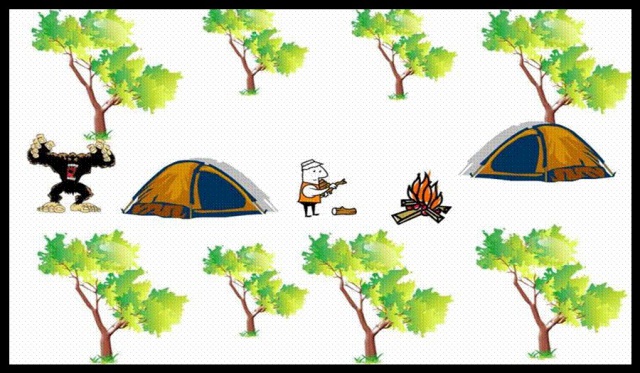(Research Tactics) Camps
Campsites are common for expeditions and most research, and whenever appropriate, the camps should always be set up in favor of the Bigfoot being able to approach from several avenues that give them sufficient cover and concealment, yet still allow the researcher to view them without too much obstruction.
It’s well known to MABRC Senior Researchers that Bigfoot will keep cover between themselves and the people in the camp. They do this by approaching from behind tents, vehicles, low lying areas such as ravines and other objects to cover their movements.
During the second Honobia Bigfoot Conference, MABRC researchers watched as multiple sets of eye shine were spotted looking OVER the vehicles that were parked across the road from the base camp. Rocks were also thrown into the camp with great accuracy, the sound as the rocks sailed through the branches of the trees around the camp testified to the force behind the rock throws.
The point being, the Bigfoot were using the vehicles for cover, in order to get close enough to view the occupants of the camp.
MABRC Researchers have also experienced Bigfoot walking through and inspecting the camp after all the researchers have went to bed in their tents. Before the last researchers crawl into their tents, it’s necessary to throw extra wood on the campfire to give off enough light for a while for the Bigfoot observing the camp to see that no one is still up and moving around. Once the fire dies down enough, the Bigfoot will begin entering the camp and rummaging through anything of interest. This is when the audio recorders come into play as they record the movement.
